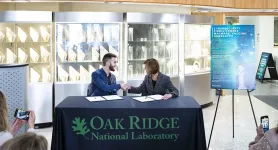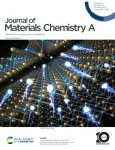(Press-News.org) A new study of some 3.6 million surgeries from National Health Service (NHS) databases in England suggests that, in most cases, it will be safe to carry out planned surgery from 2 weeks after a positive COVID test, as long as the patient has recovered – compared to current guidance that recommends delaying surgery for 7 weeks. The study is published in Anaesthesia (a journal of the Association of Anaesthetists) and is by Dr Alwyn Kotzé, University of Leeds, UK and Dr Ciarán McInerney, University of Sheffield, UK, and colleagues.
Why did previous guidance suggest surgery should be delayed for 7 weeks?
Surgical decision making after SARS-CoV-2 infection is influenced by the presence of comorbidity, infection severity, and whether the surgical problem is time-sensitive. Prior to this new research, the COVIDSurg collaborative was the largest prospective study on surgical outcomes after SARS-CoV-2 infection to date, showing an increased risk of postoperative (30-day) mortality and lung complications up to seven weeks following a positive test in patients who have recovered fully. Mortality in that study was 9.1% within 30 days for surgery within 2 weeks of a positive COVID test, reducing to 2.0% for surgery 6 weeks or more after a positive test.
That study (involving >140k patients from 116 countries) was conducted before vaccines or evidence-based drug therapy for severe COVID became available. However, United Kingdom (UK) and German guidance still recommends deferring deferrable elective surgery for seven weeks after SARS-CoV-2 infection. In contrast, latest guidance in the USA recommends seven weeks’ postponement in unvaccinated individuals only. Guidance from Australia and New Zealand recommend stratification by surgical magnitude, with postponement ranging from four weeks for minor, to 12 weeks in major surgery.
Why was this new study conducted, and what did it show?
Given that, all else being equal, delaying surgery usually leads to worse outcomes, the authors wanted to do a fresh analysis to see how safe surgery is following COVID infection in both the era with COVID vaccines, and the era of the pandemic before vaccines.
The study considered operations performed in England between 17 March 2018 and 17 March 2022 (two years before & after 17 March 2020 when all elective surgery in the UK was temporarily postponed as part of the first COVID lockdown), yielding a cohort of 3,658,140 patients undergoing surgical procedures. Of these, 1,242,180 were conducted since vaccines became widely available, on patients with a mean age of 55 years.
Overall, 30-day post-operative mortality was 0·2% and 30-day post-operative complications under 1·0% in the pandemic-with-vaccine era (see table 2). Mortality for surgery conducted within two weeks of a positive test was 1·1% (compared to 9·1% in COVIDSurg), declining to 0·3% by four weeks (5.5% in COVIDSurg)
Even when the authors looked at the pre-vaccine pandemic period (the same era covered by COVIDsurg), results from this new study showed lower mortality in England than in the global sample, of 4.1 % for surgery conducted within 2 weeks of a positive COVID test, declining to 1.3% by 4-6 weeks and 0.9% by 6 weeks and over.
Before the COVID pandemic began, 30-day mortality post-surgery overall in this study was 0.1% so close to (but slightly less than) the post-pandemic 30-day post-surgery mortality rates found in this new study.
The authors say it is important to note that, in any 6-month window, less than 3% of surgeries were conducted within the 7-week threshold after a positive PCR assay, showing that most UK hospitals were sticking to the 7-week window for no surgery after a positive COVID test suggested by the COVIDSurg study (Figure 2). This led to low numbers of patients in various groups (see table 2). Across all time periods, a higher proportion of emergency surgery was conducted within 7 weeks of a positive SARS-CoV-2 test than elective surgery, although again, always less than 3% of the emergency surgical caseload.
The authors say: “We conclude that patient outcomes were better for patients receiving care in hospitals in England than the COVIDSurg global average…While the most recent UK guidelines suggest a risk-based approach to timing of surgery after SARS-CoV2 infection, clinical experience suggests that, for all but the most urgent elective or emergency surgery, clinicians continue to postpone operations if they are scheduled within 7 weeks of SARS-CoV-2 infection. If, as our data suggest, the risk associated with surgery after SARS-CoV-2 infection is much lower than previously thought, delaying surgery might cause more harm than good, particularly in patients who have already waited longer than desirable for surgery.”
The authors note limitations to the study, including that the findings should not be used to guide decision-making for higher-risk groups e.g., those who remain symptomatic beyond the acute phase of COVID-19, or those individuals who are immunosuppressed, because the statistics are represent the overall general patient population and do not reveal the heightened risk experienced by these groups.
Dr Kotzé concludes: “This is the first large-scale analysis of surgical outcomes throughout the COVID-19 pandemic timeline. It suggests that, in England, surgical patients’ overall risk following an indication of SARS-CoV-2 infection may be lower than previously thought. Clinicians followed national guidance by operating on very few patients within seven weeks of a positive [COVID-19 test]. across all eras of the pandemic to date, surgical outcomes were substantially better than previously thought, even within seven weeks of a positive test.
“Given that delaying surgery is likely to worsen patient outcomes in the longer term, we recommend that UK guidelines should reduce the seven-week threshold for low-risk patients who have fully recovered after a positive SARS-CoV-2 test. A simple change in emphasis could suffice – for example, suggest that surgery is delayed for no more than 2 weeks after indication of a SARS-CoV-2 infection unless there are specific circumstances that places an individual at higher risk of poor outcomes. This would bring clinical guidance on surgical timing after an indication of SARS-CoV-2 infection into line with common practice regarding other acute respiratory infections.”
Professor Ramani Moonesinghe, study co-author from University College London and National Health Service England (NHSE) National Clinical Director for Critical and Perioperative Care, London, UK, said: " This analysis provides new and important data on the safety of surgery after COVID infection, and should provide reassurance to patients and clinicians. It remains really important to take up the opportunity for vaccination when it is offered, to reduce the risk of severe COVID infection."
Dr Alwyn Kotzé, School of Medicine, University of Leeds, Leeds, UK. T) +44 7971 802860 E) a.kotze@leeds.ac.uk
Dr Ciarán McInerney, Academic Unit of Primary Medical Care, University of Sheffield, Sheffield, UK. T) +44 7903 063692 E) Ciaran.McInerney@sheffield.ac.uk
Professor Ramani Moonesinghe, study co-author from University College London and National Health Service England (NHSE) National Clinical Director for Critical and Perioperative Care, London, UK. Please e-mail to arrange interview. E) ramani.moonesinghe@nhs.net
Alternative contact: Tony Kirby of Tony Kirby PR T) +44 7834 385827 E) tony@tonykirby.com
END
Analysis of 3.6 million patient surgeries in England suggests it is safe to operate on patients 2 weeks after a positive COVID diagnosis, as long as they have recovered
This would bring down the recommended delay for surgery from the current recommendation of 7 weeks down to 2 weeks
2023-03-24
ELSE PRESS RELEASES FROM THIS DATE:
ORNL malware ‘vaccine’ generator licensed for Evasive.ai platform
2023-03-24
Access to artificial intelligence and machine learning is rapidly changing technology and product development, leading to more advanced, efficient and personalized applications by leveraging a massive amount of data.
However, the same abilities also are in the hands of bad actors, who use AI to create malware that evades detection by the algorithms widely employed by network security tools. Government agencies, banking institutions, critical infrastructure, and the world’s largest companies and their most used products are increasingly under threat from malware that can evade anti-virus systems, hijack networks, ...
THE LANCET: Health experts call for bold action to prioritize health over profit
2023-03-24
A new Series published in The Lancet describes how, although commercial entities can contribute positively to health and society, the products and practices of some commercial actors are responsible for escalating rates of avoidable ill health, planetary damage, and social and health inequity. Authors make key recommendations to ensure that contemporary capitalism is compatible with good population health.
The industries that produce just four harmful products – tobacco, alcohol, unhealthy food, and fossil fuels – account for at least a third of global deaths, illustrating the scale and huge economic cost of the problem.
Professor Rob Moodie, Series Lead ...
THE LANCET: Largest US state-by-state analysis of COVID-19 impact reveals the driving forces behind variations in health, education, and economic performance
2023-03-24
Peer-reviewed / Observational and modelling study / People
Four-fold variation in standardised COVID-19 death rates across US states between January 2020 and July 2022 – with death rates lowest in Hawaii, New Hampshire, and Maine and highest in Arizona, Washington, DC, and New Mexico.
COVID-19 exploited and compounded existing local racial inequities, health disparities, and partisan politics, resulting in a disproportionate burden of COVID-19 on communities of colour and in states that voted heavily Republican in the 2020 presidential election.
No link otherwise between state governors' ...
Risk of cervical cancer twice as high in women with mental illness
2023-03-24
Women with mental illness, neuropsychiatric disability, or substance abuse are less likely to go for gynaecological smear tests for cervical cancer and run more than twice the risk of developing the disease. The findings are presented in The Lancet Public Health by researchers from Karolinska Institutet, who stress the importance of proactively approaching these women as a preventative measure against cervical cancer.
In May 2020, the WHO approved a global strategy for eliminating cervical cancer as a women’s health problem. Part of the strategy is a requirement that 70 percent of women are screened for the disease at least once before age 35 and twice before ...
Poorest children have worse health and educational outcomes in adolescence
2023-03-24
Generation Z children born into the poorest fifth of families in the UK are 12 times more likely to experience a raft of poor health and educational outcomes by the age of 17 compared to more affluent peers, finds a new report led by UCL researchers.
The study, published in The Lancet Public Health, used data from the Millennium Cohort Study, a major study of more than 15,000 children born after the new millennium (September 2000 - January 2002) who are now in their early 20s.
Researchers collected data on five adverse health and social outcomes in adolescents aged 17 years, which are known to limit life chances: ...
More support needed for children with disabilities using the Internet
2023-03-24
Children with disabilities need better support to manage their online lives and potential online risks, according to new research led by the University of East Anglia (UEA).
For children with disabilities, being online and part of a well-connected community can have huge benefits. However, children with disabilities will encounter more online risks, and these can escalate more quickly than for their peers.
The research shows that extra support from professionals such as teachers, youth workers and speech and language therapists does not always happen when they are learning, playing, and socialising on the Internet. It also highlights how this impacts on the ability ...
Giant volcanic ‘chain’ spills secrets on inner workings of volcanoes
2023-03-24
Volcanic relics scattered throughout the Australian landscape are a map of the northward movement of the continent over a ‘hotspot’ inside the Earth, during the last 35 million years.
University of Queensland researchers Dr Tamini Tapu, Associate Professor Teresa Ubide and Professor Paulo Vasconcelos discovered how these relics reveal the inner structure of the Australian volcanoes became increasingly complex as the hotspot’s magma output decreased.
Dr Al-Tamini ...
Simplified calculations reproduce complex plasma flows
2023-03-24
Overview
Accurate and fast calculation of heat flow (heat transport) due to fluctuations and turbulence in plasmas is an important issue in elucidatingthe physical mechanisms and in predicting and controlling the performance of fusion reactors.
A research group led by Associate Professor Motoki Nakata of the National Institute for Fusion Science and Tomonari Nakayama, a Ph.D student at the Graduate University for Advanced Studies, has successfully developed a high-precision mathematical model to predict the heat transport level. This was achieved by applying a mathematical optimization method to a lot of turbulence and heat transport ...
KERI-KIT develop an optimal SiS2 production technology to boost ASSB performance
2023-03-24
A team led by Dr. Ha Yoon-Cheol, a Principal Researcher of Next Generation Battery Research Center at the Korea Electrotechnology Research Institute (KERI) and Dr. Cheol-Min Park, a Professor of School of Materials Science and Engineering at Kumoh National Institute of Technology (KIT), has developed a low-cost production technology for silicon disulfide (SiS2) for solid-state electrolytes (argyrodite-type) that has potential to accelerate the commercialization of all-solid-state batteries (ASSBs).
ASSBs replace the liquid-state electrolytes that transfer ions between the anode ...
Heated tobacco products make SARS‑CoV‑2 infection and severe COVID‑19 more likely
2023-03-24
Heated tobacco products—an alternative to traditional cigarettes, similar to e-cigarettes or vapes—do not burn tobacco leaves, but rather allow users to inhale the vapor produced by heating the tobacco leaves. Users choose heated tobacco products to avoid the smoke and odor of burnt tobacco as well as the expectation that they pose fewer health risks than traditional cigarettes. However, the long-term health effects of heated tobacco products, particularly the new risk of SARS-CoV-2 infection, have not been clarified.
Addressing this concern, ...
LAST 30 PRESS RELEASES:
Fossil amber reveals the secret lives of Cretaceous ants
Predicting extreme rainfall through novel spatial modeling
The Lancet: First-ever in-utero stem cell therapy for fetal spina bifida repair is safe, study finds
Nanoplastics can interact with Salmonella to affect food safety, study shows
Eric Moore, M.D., elected to Mayo Clinic Board of Trustees
NYU named “research powerhouse” in new analysis
New polymer materials may offer breakthrough solution for hard-to-remove PFAS in water
Biochar can either curb or boost greenhouse gas emissions depending on soil conditions, new study finds
Nanobiochar emerges as a next generation solution for cleaner water, healthier soils, and resilient ecosystems
Study finds more parents saying ‘No’ to vitamin K, putting babies’ brains at risk
Scientists develop new gut health measure that tracks disease
Rice gene discovery could cut fertiliser use while protecting yields
Jumping ‘DNA parasites’ linked to early stages of tumour formation
Ultra-sensitive CAR T cells provide potential strategy to treat solid tumors
Early Neanderthal-Human interbreeding was strongly sex biased
North American bird declines are widespread and accelerating in agricultural hotspots
Researchers recommend strategies for improved genetic privacy legislation
How birds achieve sweet success
More sensitive cell therapy may be a HIT against solid cancers
Scientists map how aging reshapes cells across the entire mammalian body
Hotspots of accelerated bird decline linked to agricultural activity
How ancient attraction shaped the human genome
NJIT faculty named Senior Members of the National Academy of Inventors
App aids substance use recovery in vulnerable populations
College students nationwide received lifesaving education on sudden cardiac death
Oak Ridge National Laboratory launches the Next-Generation Data Centers Institute
Improved short-term sea level change predictions with better AI training
UAlbany researchers develop new laser technique to test mRNA-based therapeutics
New water-treatment system removes nitrogen, phosphorus from farm tile drainage
Major Canadian study finds strong link between cannabis, anxiety and depression
[Press-News.org] Analysis of 3.6 million patient surgeries in England suggests it is safe to operate on patients 2 weeks after a positive COVID diagnosis, as long as they have recoveredThis would bring down the recommended delay for surgery from the current recommendation of 7 weeks down to 2 weeks





